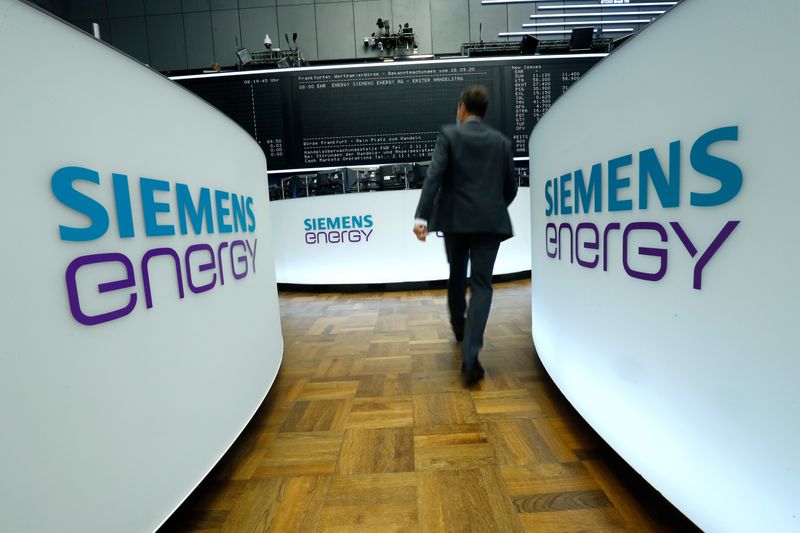Siemens Energy Falls After Lowering Full-Year Outlook
2022.08.08 12:15

By Geoffrey Smith
Investing.com — Siemens Energy (ETR:ENR1n) stock fell at the opening in Europe on Monday after the maker of wind and steam turbines and grid solutions said its net loss would widen this year, due to writedowns in Russia and a bigger-than-expected hit from its troubled renewables subsidiary Gamesa (F:GAM).
The company, which has been badly caught in the crossfire between Germany and Russia over natural gas deliveries due to its status as a supplier of equipment to Russian gas monopoly Gazprom (MCX:GAZP), said its net loss in the three months through June widened to 533 million euros ($543 million) from 307 million euros a year ago, due to a 200 million euro charge against the value of its Russian operations and continuing high losses at its Spanish-based maker of wind turbines.
It said it expects no further material impact from the Russian writedowns, and indicated that this item would account for all of the expected deterioration in full-year results.
Siemens Energy had announced earlier this year it will raise capital to buy out Gamesa’s minority shareholders, hoping to get a firmer grip on costs at the company. These have ballooned due to higher commodity prices and supply chain bottlenecks for key components, even as ongoing fierce competition to equip the world’s growing fleet of wind farms has restricted its ability to raise prices. Gamesa’s underlying earnings before interest, taxes and amortization swung to a loss of 131 million euros from a profit of 54 million in the quarter.
Siemens Energy stock, which has had a miserable year so far, losing over 50%, fell 3.0% in Frankfurt in response to the news, which reinforced fears that its road back to profitability will be a long one.
The company did, however, report one bright spot. Its order backlog rose to a new record high of 93.4 billion euros at the end of the quarter. Inflows of new orders rose 60% from a year earlier to 9.84 billion euros, as the surge in electricity prices across much of the world stimulated investment in more generation and transmission capacity, notably in Europe, the Middle East and Africa.
As such, management upheld its guidance for the full fiscal year through September, although it warned that “further negative effects associated with geopolitical and macroeconomic challenges cannot be ruled out.”








